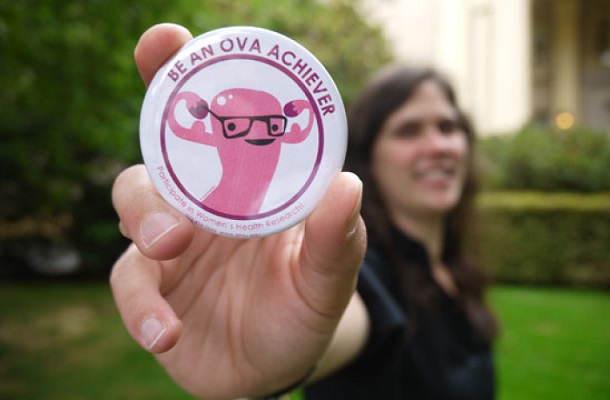Expanding Options for Women: Women's Health Research Unit

As Oregon's only academic health center, research is the backbone of our work here at OHSU. Our research leads to new treatments and cures, and increases medical knowledge around the world. The Women's Health Research Unit is an important part of this effort.
"Our broad goal is to expand options for women," says Marci Messerle-Forbes, Nurse Practitioner and Senior Research Associate at the Women's Health Research Unit. "Through clinical trials, we have helped develop new contraception choices and new treatments for gynecological health issues."
The Need for Women's Health Research
The need for clinical trials and other research focused on women is critical. Historically, women have been under-represented in clinical trials in all areas of health research. As research has included more women, we've learned that they sometimes process and react differently to medications and treatments than men. Yet, many existing treatments used for both men and women have not been equally studied in women.
When it comes to woman-focused topics like female contraception and gynecology, options are often limited because there just hasn't been enough research yet into new possibilities.
"Women are an under-evaluated population," says Messerle-Forbes. "We can give them expanded and better options, for contraception and gynecological disease, by putting more resources into this research."
This is exactly what the Women's Health Research Unit does. In addition to two decades of research in gynecology, the Unit has been part of the national Contraceptive Clinical Trials Network since 2004. This means that when new contraceptive methods are being developed, OHSU is one of just a dozen medical centers in the country studying them.
You can participate in these trials and other research studies, to help us move women's health research forward.
Why Should You Participate?
Participation in a clinical trial is not only beneficial to participants who get free, high-quality medical care, but it benefits the greater good. On the national level, and beyond, clinical trials move women's health concerns forward. New treatments studied at OHSU today will support and heal women everywhere tomorrow.
From the Women's Health Research Unit, for example, studies led by Alison Edelman, M.D., M.P.H., were some of the first in the world to show that women of higher body mass index (BMI) who use birth control pills have different drug levels in their bodies than women of lower BMI. This could place them at greater risk for contraceptive failure.
Research by Martha Goetsch, M.D., M.P.H., has resulted in new topical treatments that women can apply themselves to prevent painful intercourse associated with menopause.
For women who can't use some of the popular forms of birth control for health reasons or because they can't take estrogen, having access to up-and-coming options through clinical trials is a real win.
"Not only do trial participants get free access to the treatment, but they are monitored very closely for any side effects or problems –much more closely than they would be by their regular clinician," says Messerle-Forbes.
Study participants are also compensated for their time and travel. "For intensive studies, those requiring dozens of visits over several months, women may be compensated up to $2,000," Messerle-Forbes says.
Enrolling Now
You can learn more online about all of the Women's Health Research Unit's open studies. There are also clinical trials and study opportunities throughout OHSU. If there isn't a good fit today, check back soon. There's always a new study starting.